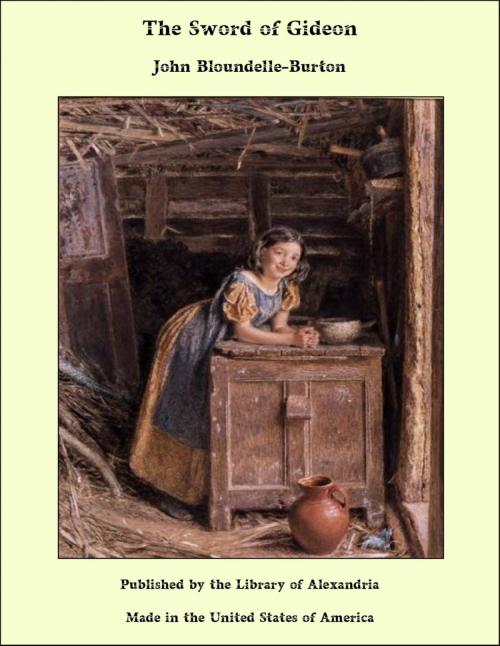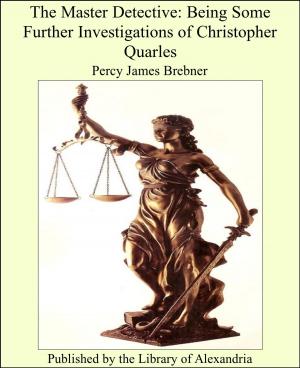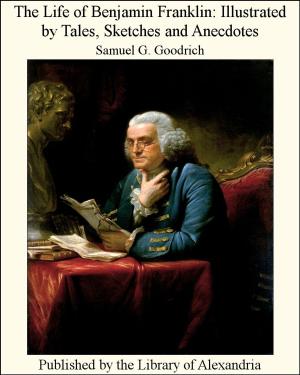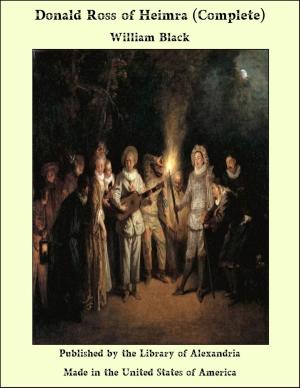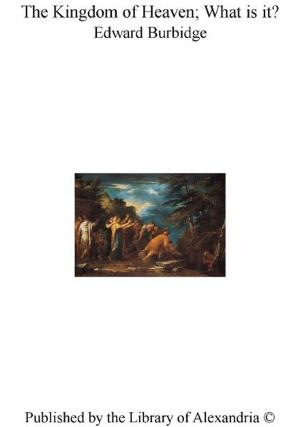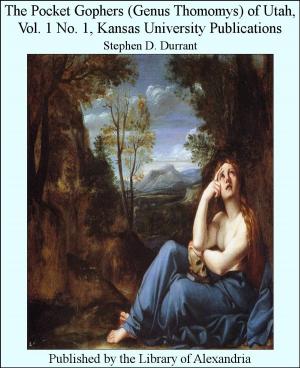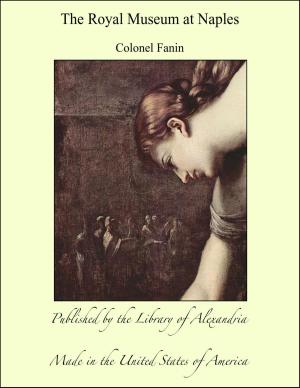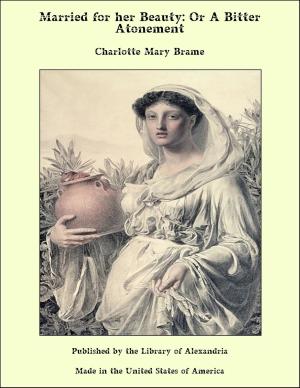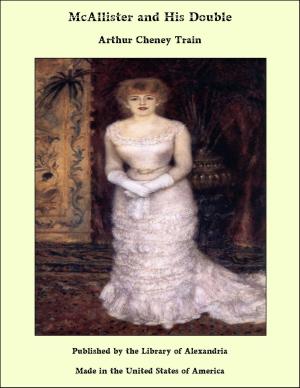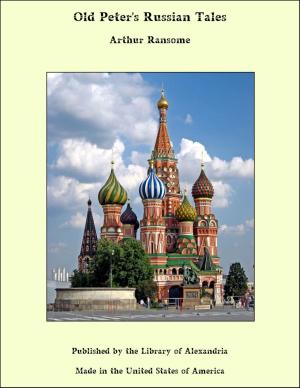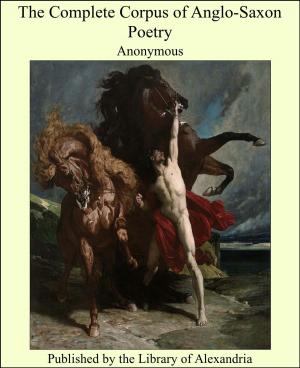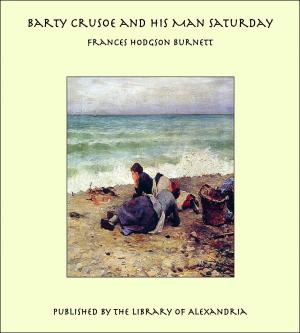| Author: | John Bloundelle-Burton | ISBN: | 9781465610263 |
| Publisher: | Library of Alexandria | Publication: | March 8, 2015 |
| Imprint: | Language: | English |
| Author: | John Bloundelle-Burton |
| ISBN: | 9781465610263 |
| Publisher: | Library of Alexandria |
| Publication: | March 8, 2015 |
| Imprint: | |
| Language: | English |
To north and south and east and west horsemen were spurring fast on the evening of May 15th, 1702 (N.S.), while, as they rode through hamlets and villages, they heard behind them the bells of the churches beginning to ring many a joyous peal. Also, on looking back over their shoulders, they saw that already bonfires were being lit, and observed the smoke from them curling up into the soft evening air of the springtime. For these splashed and muddy couriers had called out as they passed through the main streets of the villages that the long expected war with France was declared at last by England, by Austria--or Germany, as Austria was then called--and the States-General of the United Netherlands. Wherefore, it was no wonder that the bonfires were instantly set blazing and the bells ringing, since now, all said to the others, the great, splendid tyrant who for sixty years had given orders from his throne for battles, for spoliation and aggrandisement, for the humbling of all other countries beneath the heel of France, would meet his match. He--he! this superb arbiter of others' fate, who had in his younger days been called Le Dieudonné and in his older Le Roi Soleil--he who had driven forth from their homes countless Protestants and had cruelly entreated those who had remained by their hearths, while desiring only to worship God in their own way and without molestation, must surely be beaten down at last. "And--'tis good news!--Corporal John goes, they say," exclaimed several of these horsemen as they drew bridle now and again at some village inn, "as Captain-General of all Her Majesty's forces and chief in command of the allied armies. He has been there before and hates Louis; Louis who, although he gave him command of his English regiment, would not give him command of a French one when he would have served France. Let us see how he will serve him now." "I pity his generals and his armies when my lord the Earl of Marlborough crushes them between his ranks of steel," said one who stood by; "the more so that Lewis"--as they called him in this country--"has insulted us by espousing the claims of James's son, by acknowledging him as King of England. He acknowledges him who is barred for ever from our throne by the Act of Succession, and also because his father forswore the oath he took in the Abbey." "He acknowledges the babe who, as I did hear Bishop Burnet say in Salisbury Cathedral," a Wiltshire rustic remarked, "was no child at all of the Queen, but brought into the palace in a warming pan, so that an heir should not be wanting." "He persecutes all of our faith," a grave and reverend clergyman remarked now; "a faith that has never harmed him; that, in truth, has provided him with many faithful subjects who have served him loyally. And now he seeks to grasp another mighty country in his own hands, another great stronghold of Papistry--Spain. And wrongfully seeks, since, long ago, he renounced all claims to the Spanish throne for himself and his."
To north and south and east and west horsemen were spurring fast on the evening of May 15th, 1702 (N.S.), while, as they rode through hamlets and villages, they heard behind them the bells of the churches beginning to ring many a joyous peal. Also, on looking back over their shoulders, they saw that already bonfires were being lit, and observed the smoke from them curling up into the soft evening air of the springtime. For these splashed and muddy couriers had called out as they passed through the main streets of the villages that the long expected war with France was declared at last by England, by Austria--or Germany, as Austria was then called--and the States-General of the United Netherlands. Wherefore, it was no wonder that the bonfires were instantly set blazing and the bells ringing, since now, all said to the others, the great, splendid tyrant who for sixty years had given orders from his throne for battles, for spoliation and aggrandisement, for the humbling of all other countries beneath the heel of France, would meet his match. He--he! this superb arbiter of others' fate, who had in his younger days been called Le Dieudonné and in his older Le Roi Soleil--he who had driven forth from their homes countless Protestants and had cruelly entreated those who had remained by their hearths, while desiring only to worship God in their own way and without molestation, must surely be beaten down at last. "And--'tis good news!--Corporal John goes, they say," exclaimed several of these horsemen as they drew bridle now and again at some village inn, "as Captain-General of all Her Majesty's forces and chief in command of the allied armies. He has been there before and hates Louis; Louis who, although he gave him command of his English regiment, would not give him command of a French one when he would have served France. Let us see how he will serve him now." "I pity his generals and his armies when my lord the Earl of Marlborough crushes them between his ranks of steel," said one who stood by; "the more so that Lewis"--as they called him in this country--"has insulted us by espousing the claims of James's son, by acknowledging him as King of England. He acknowledges him who is barred for ever from our throne by the Act of Succession, and also because his father forswore the oath he took in the Abbey." "He acknowledges the babe who, as I did hear Bishop Burnet say in Salisbury Cathedral," a Wiltshire rustic remarked, "was no child at all of the Queen, but brought into the palace in a warming pan, so that an heir should not be wanting." "He persecutes all of our faith," a grave and reverend clergyman remarked now; "a faith that has never harmed him; that, in truth, has provided him with many faithful subjects who have served him loyally. And now he seeks to grasp another mighty country in his own hands, another great stronghold of Papistry--Spain. And wrongfully seeks, since, long ago, he renounced all claims to the Spanish throne for himself and his."
